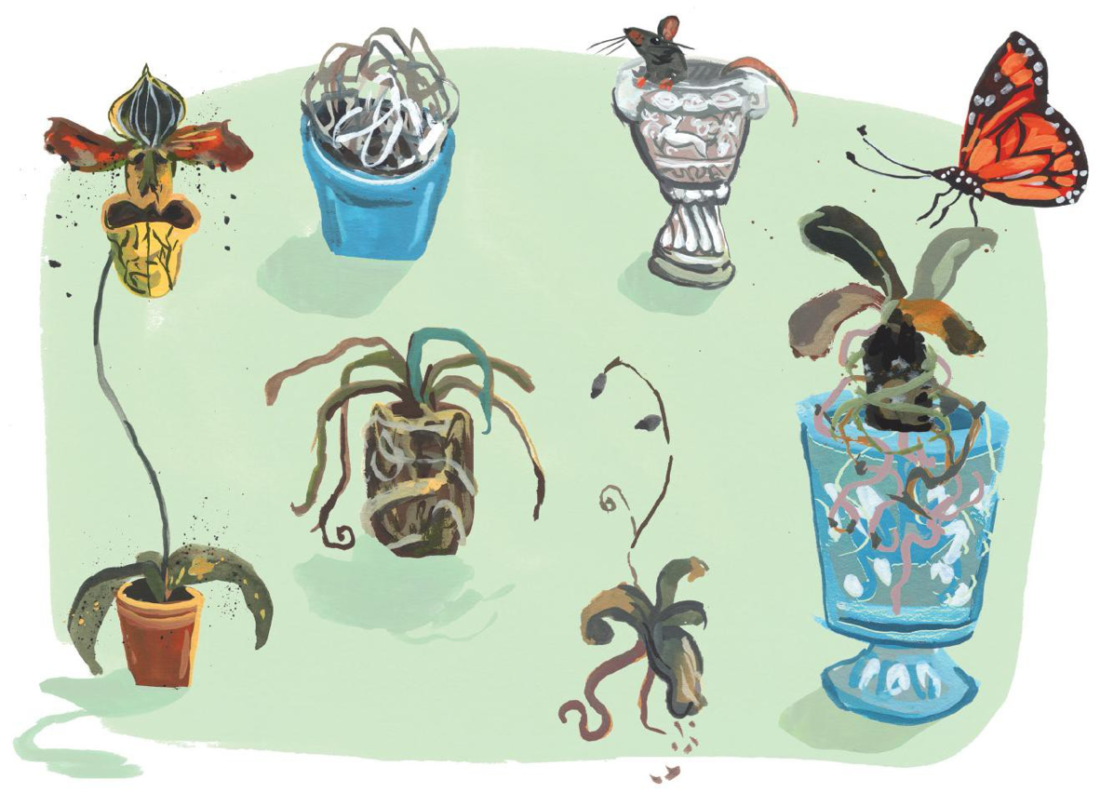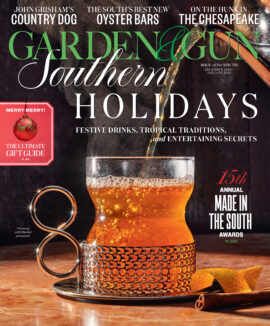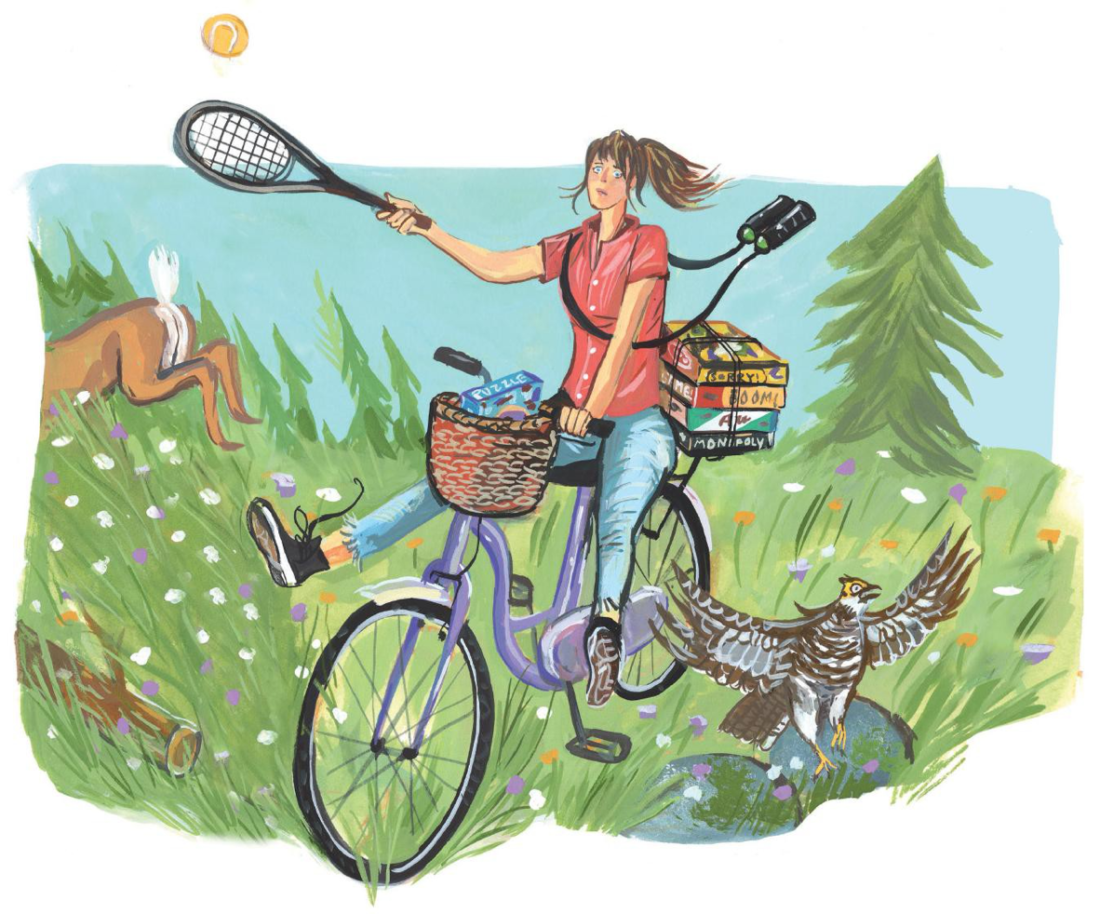Much as I had hoped that my cornucopia of raw charisma, coupled with my mild case of celebrity, would be sufficient fuel to elicit dates as a forty-something single in 2022, I have been deeply disappointed to learn that I, too, have to travel down the well-worn but new-to-me path of online dating profiles and the ensuing small talk with strangers and awkward—sometimes awful—scheduled first encounters. I am also apparently required to have hobbies.
When the dating app asked me to list them, it was a little startling to step back and gaze at the hole in my personality where mentionable hobbies should be. Don’t get me wrong: I like to do things. I’m just not listicle-level proud of all of them. Imagine a Hinge profile that reads, “If I’m not fighting my personal war on aging with lasers, microcurrents, or the full spectrum of LED lights, you’ll find me rearranging small items around my house until their new position improves my overall mood. If we like each other, I could do all of this at your house.” Or consider swiping right on this one: “I rescue healthy orchids with dead spikes from office buildings and windowsills all over North Carolina. I’d love to save you, too.” See what I mean? My hobbies aren’t exactly nectar for romance.
Many people consider a love of long walks or bike rides, or a general attachment to the outdoors, an integral part of their makeup. I enjoy moseying around the yard in the fresh air as much as anybody, but not when it’s hot, cold, windy, wet, rocky, uphill, or humid. That’s a lot of filters, so claiming I love to get outside on the regular feels like it might misrepresent me. Plus, my past attempts to develop an alfresco leisure interest have gone nowhere.
While I would relish seeing, for instance, an easy way with a game of tennis bopping around in my hobby hole, my college experience taught me better. I signed up for a beginners’ class, not only to fulfill my final physical education requirement, but also, more importantly, I was certain that learning the sport would make me a better adult in unquantifiable ways. As it turns out, all but one student in Tennis 101 had selected the class because a) they already knew how to play, and b) they wanted an easy A. Guess who that one student was. I had to take the final exam twice—the first time like everybody else, rallying back and forth with a partner; and, after I failed that one, the second time against a wall. I nearly didn’t graduate.
Alas, I squandered the opportunity to be able to wax on, on my profile, about a lifelong love and particular talent for cooking, when I took a perfectly good hobby and instead made it my work. But after more than twenty years in professional kitchens, I’m ashamed to say that even the act of eating has lost some of its luster. I know when food is objectively good, and I don’t by any means dislike what I do. It’s just that if your livelihood depends on something, you want to do it as quickly and as precisely and as smart as you can. As a result, if you were to come over to my house and cook dinner with me, it would feel like that time someone promised to show you how to do something, and then just ripped all the pieces away and did it themselves. And eating in restaurants, which so many today consider a hobby? Well, if comparative studies, in which one measures her own manifestation of craft against everything that’s happening directly in front of her, sounds like fun to you, then let’s book a table!
It’s not lost on me that the exposure my Tennis 101 classmates had to the sport probably came from a family member’s own affinity for it. Hobbies, it seems, often get passed down through nurture rather than nature. I know lots of families who break out board games, decks of cards, and thousand-piece puzzles when faced with the question of how to spend time together. I’ve marveled, wide-mouthed, at the muscle memory apparent in their roll of the dice, their deft shuffle of UNO cards, and the way they wordlessly divide and conquer to organize piles of color-coded puzzle pieces. As a rule, though, the Howards do not play. We don’t engage in sports, we don’t do make-believe, and we certainly don’t bring boxes of things with lots of pieces into the house unless their contents can be eaten or serve some practical work or scholarship-driven purpose.

Yet I have always wanted to be in one of those families and in fact have charted a decade-long quest to mold my little nuclear unit into people who play games. Monopoly, Candy Land, backgammon, Clue, all the card games—I own them. I’ve played most of them personally a few times. I’ve forced board-game hour on my kids like a chore and attached its successful completion to their allowance. I’ve started approximately eight monochromatic, meant-to-be-hard puzzles that when assembled would have been worthy of a frame. But a complete finish was never on the table; when it takes weeks to establish the puzzle’s perimeter, it proves impossible to keep up with all the little pieces.
Staring into the void of my hobby-less life, I started to ponder what function these ritualized activities serve and why they matter. Aren’t hobbies meant to soften the edges when we’re stressed? Shouldn’t we look forward to getting started on them? Would it not make sense for a smile to magically form on our faces when reveling in them? And, unless they hurt us or someone else, aren’t the acts that bring us joy the accessories that make us our best selves? I think so.
To that end and with no expectations for how it will read or how sophisticated or interesting it makes me seem, I’ve done what I love and rearranged things to make my hobby lobby a serene, secure, accurate representation of me. Now my online dating profile reads:
“I come from a long line of women who meditate. We tap into our best ideas and most profound thoughts while wielding a bottle of Windex in one hand and a dust mop in the other. I find my greatest peace when I see my reflection in the floor following sessions of deep, broom-guided exercise. I water plants, even my outdoor ones, with a little watering can rather than a hose because it takes longer, and the act of it reminds me of my mom, her geraniums, and her own watering can. Although I believe I have the potential to be athletic, the only sport I’ve really taken to is Ping-Pong. Even though I rarely pick up a paddle these days, an adolescence worth of Saturdays spent battling my own Ping-Pong table’s backboard made me pretty hard to beat. I’m an INCREDIBLE cook. Yet, as long as they’re open to suggestions, I really like it better when people cook for me. And I’m not sure what category it falls into—activity, interest, or obsession—or if I was born with a hunger for it or if it was nurtured into me along the way, but the thing I plan to pursue and hope I’m good at until the day I die, the hobby that gives and never takes, the thing I love to do most, is laugh.”








